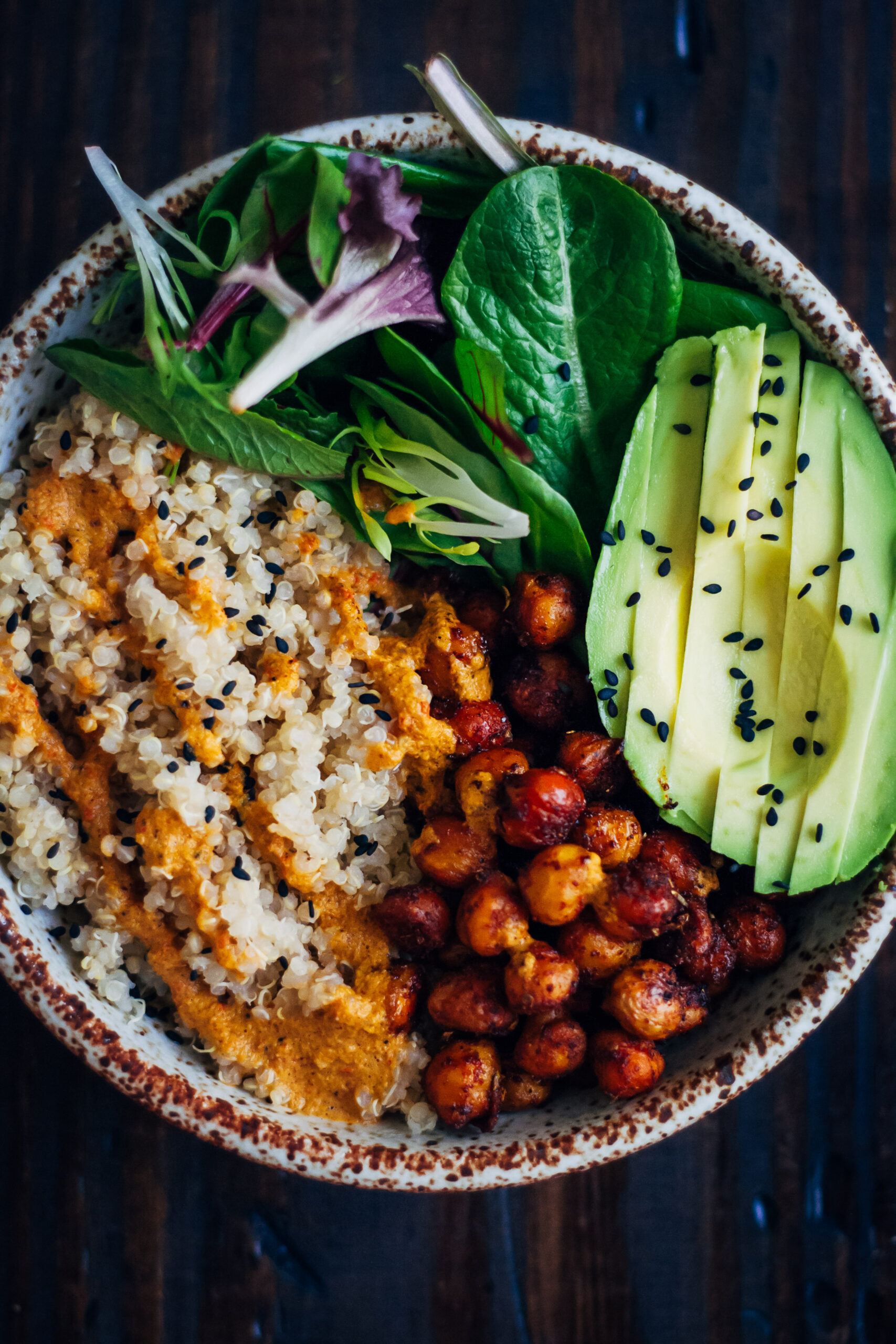The vegan regimen consists solely of plants or foods made from plants. This diet consists of fruits, veggies, nuts, and grains. Vegans do not eat food coming from animals in any form including eggs and dairy products. Veganism is acknowledged as healthy diet capable of reducing the risks of several medical conditions like some cancer diseases, cardiovascular ailments, high cholesterol and blood pressure, and Type 2 diabetes.
Healthy Vegan Eating
The goal of balanced vegan nourishment is to obtain the most of nutrients you require daily. Wholesome vegan plans ideally consist of the following:
- Minimum of five portions daily (combination of fresh vegetables and fruits)
- Basic meal of starchy carbohydrates such as bread, pasta, potatoes, and rice with wholegrains (if possible)
- Soya beverages which are low in fat and sugar
- Beans, lentils, peas, and other proteins
- Small amounts of unsaturated oils and spreads
- Six up to eight glasses of water and fluids
- Fewer amounts of salt, sugar, and fats
What you need is to get all the nourishment the body needs. Plan your fare efficiently to avoid missing on vital nutrients such as Vitamin B12, Vitamin D, calcium, iron, and Omega 3 fatty acids.
Vitamin D and Calcium
Our bodies need Vitamin D for controlling the amount of calcium and phosphate within our systems. It helps maintain healthy bones, muscles, and teeth. For vegans, Vitamin D sources are moderate exposure to mid-day sun, breakfast cereals like organic corn flakes, fortified fat spreads (margarine), and unsweetened soya beverages. You can also take Vitamin D supplements that contain Omega 3 fats from microalgae plants.
Check labels carefully to make sure the Vitamin D is not animal-obtained.
Calcium is also required for robust teeth and bones. Vegan sources of calcium are the following:
- Fortified rice, soya, and oats minus the sugar
- Sesame seeds and tahini sauce or paste
- Beans and lentils
- White or brown bread
- Dried fruits like apricots, figs, prunes, and raisins
Iron
Iron is crucial to the production of red-blood cells. Vegan regimen must have high iron content. However, the body absorbs iron derived from botanicals much slowly compared to iron that comes from meat . Vegan sources of iron are the following:
- Nut, beans, and lentils
- Iron-supported cereals
- Whole meal flour and bread
- Dark-green and leafy veggies like broccoli and watercress
- Dried fruits
Vitamin B-12
Vitamin B-12 sustains the nervous system and keeps the blood flowing. You can find this nutrient only in foods from animals. Therefore, vegan options are quite limited. To make up for this shortage, vegans can take more B12 supplements. Natural sources include yeast extract like Marmite food spread normally used for brewing, breakfast cereals, and soya drinks without sugar.
Omega-3 fatty acids are generally present in oily fish. Sources of these acids for most vegans are Flaxseed or Linseed oil, oil seed, tofu, and walnuts.
Protein
Proteins are important for everybody. Protein foods are essential in maintaining strong bones, muscles, and organs as well as healthy skin. Amino acids represent the foundation of protein to break down food effectively. The absence of meat and dairy products compel vegans to eat a lot of these amino acids which consist of Carboxyl, Amine, and the R group side chain.
Vegans obtain their protein from seeds, grains, nuts, legumes, and peanut butter. Soymilk and tofu also provide your protein requirements. Vegans must consider adequate protein composed of small portions of these acids to help their metabolism. Some examples of amino acid sources are the combination of beans and rice or beans or corn.
If you’re a vegan, follow the basic tenets of the right vegan diet. See to it that you consume the proper nutrients with the correct portions of foods, vitamins, and minerals. It calls for discipline and appropriate planning all the way. Make sure that you maintain your weight through controlled exercise activities.


Leave a Reply